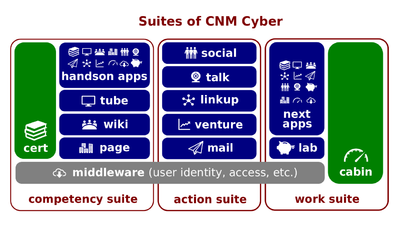Difference between revisions of "Narrated Fact vs Opinion"
(→Script) |
(→Script) |
||
| Line 10: | Line 10: | ||
:[[Irrealis mode]]s express desired, irreal, possible, or uncertain actions or situations. [[Imperative phrase]]s such as <code>Please compare!</code> express commands or requests. [[Subjunctive phrase]]s such as <code>I wish you compared!</code> express desires or wishes. Other [[irrealis phrase]]s include [[conditional phrase|conditional]], [[hypothetical phrase|hypothetical]], [[interrogative phrase|interrogative]], and other ones. Grammatically, [[verb auxiliary|verb auxiliari]]es such as ''could'' and ''should'', [[verb mode]]s, and [[modal construction]]s such as <code>if you go, I will follow</code> convey the modality type. | :[[Irrealis mode]]s express desired, irreal, possible, or uncertain actions or situations. [[Imperative phrase]]s such as <code>Please compare!</code> express commands or requests. [[Subjunctive phrase]]s such as <code>I wish you compared!</code> express desires or wishes. Other [[irrealis phrase]]s include [[conditional phrase|conditional]], [[hypothetical phrase|hypothetical]], [[interrogative phrase|interrogative]], and other ones. Grammatically, [[verb auxiliary|verb auxiliari]]es such as ''could'' and ''should'', [[verb mode]]s, and [[modal construction]]s such as <code>if you go, I will follow</code> convey the modality type. | ||
| − | :Grammatically, the [[realis mode]] expresses real actions or situations. However, [[ | + | :Grammatically, the [[realis mode]] expresses real actions or situations. However, only [[factual statement]]s express real events, state of affairs, or anything else that is worthy of reporting. These ''statements'' express something what is true, is known to be true, can be tested and proven true, and/or observed through direct experience. |
| − | :[[ | + | :On the contrary, [[opinion statement]]s express one's feelings or beliefs, cannot be proven true or false, are false and just tried to be misrepresented as true, speculations about the future, and/or anything controversial or debatable. |
| + | :No grammatical indicator exists to distinguish between factual and opinion statements. Both of those use [[verb]]s in the [[realis mode]]. Only one's logic can separate opinions and facts. | ||
| − | + | :[[Normative statement]]s describe how the world should be, how things are designed to be, how situations normally are, and so on. Grammatically, these statements may be expressed using constructions such as ''shall'' and ''have to'' of some [[irrealis mode]]s. | |
| + | |||
| + | :Nevertheless, some ''normative statements'' may be also expressed in the [[realis mode]]. | ||
===Key terms=== | ===Key terms=== | ||
Revision as of 22:57, 12 November 2020
Narrated Fact vs Opinion (hereinafter, the Lectio) is the lesson part of Technical Report Essentials lesson that introduces its participants to technical report concepts. This lesson belongs to the CNMCT Entrance section of the CNM Cyber Placement.
Content
The predecessor lectio is What Reporting Is.
Script
- Any natural language such as English may serve a variety of purposes. Language modality conveys the notion of that variety. Two categories of grammatical modes can be found in all of the languages.
- Irrealis modes express desired, irreal, possible, or uncertain actions or situations. Imperative phrases such as
Please compare!express commands or requests. Subjunctive phrases such asI wish you compared!express desires or wishes. Other irrealis phrases include conditional, hypothetical, interrogative, and other ones. Grammatically, verb auxiliaries such as could and should, verb modes, and modal constructions such asif you go, I will followconvey the modality type.
- Grammatically, the realis mode expresses real actions or situations. However, only factual statements express real events, state of affairs, or anything else that is worthy of reporting. These statements express something what is true, is known to be true, can be tested and proven true, and/or observed through direct experience.
- On the contrary, opinion statements express one's feelings or beliefs, cannot be proven true or false, are false and just tried to be misrepresented as true, speculations about the future, and/or anything controversial or debatable.
- No grammatical indicator exists to distinguish between factual and opinion statements. Both of those use verbs in the realis mode. Only one's logic can separate opinions and facts.
- Normative statements describe how the world should be, how things are designed to be, how situations normally are, and so on. Grammatically, these statements may be expressed using constructions such as shall and have to of some irrealis modes.
- Nevertheless, some normative statements may be also expressed in the realis mode.
Key terms
Closing
The successor lectio is What Tech Report Is.
